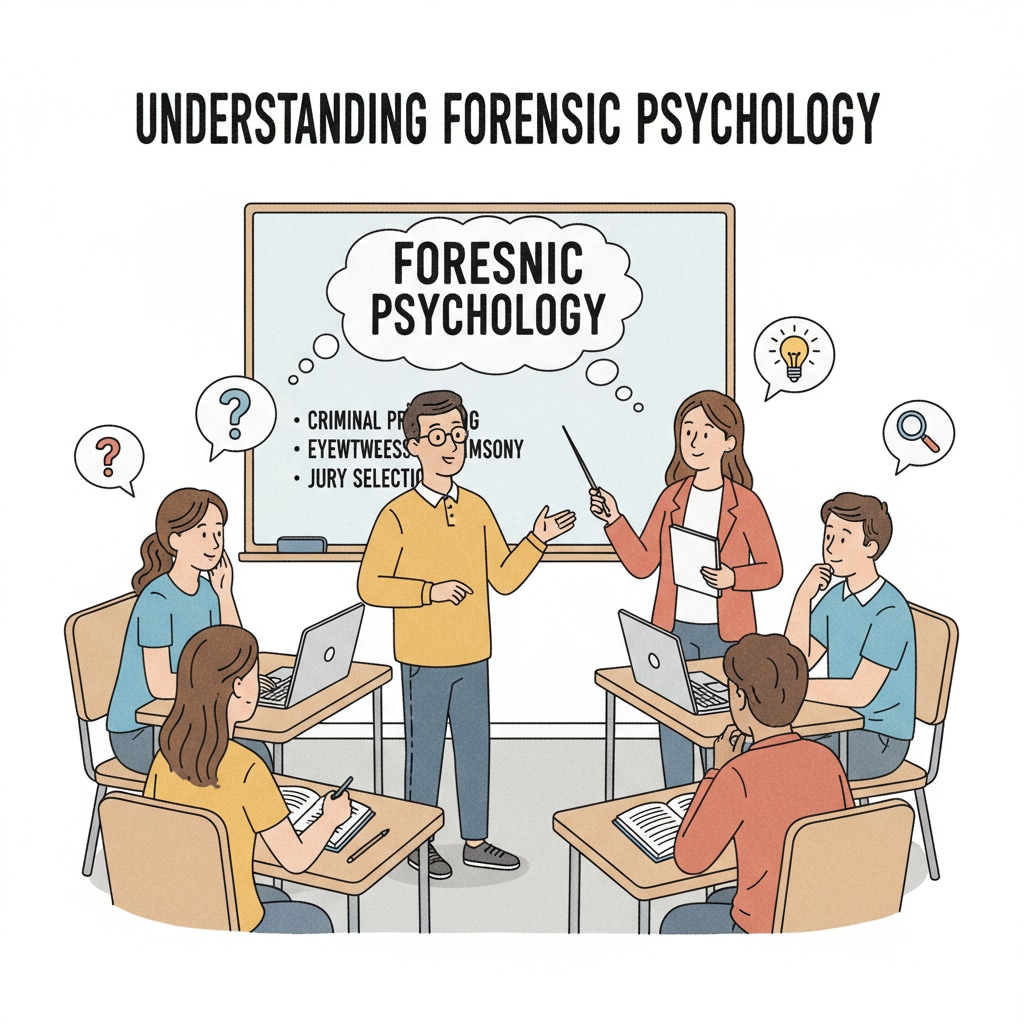Forensic psychology, college majors, and career planning are crucial aspects for students dreaming of entering the unique field of forensic psychology. This article will guide you through the necessary steps during your K12 education to lay a solid foundation for this fascinating career.

Core Subject Mastery in K12
During your K12 years, focusing on certain core subjects is essential. Psychology is at the heart of forensic psychology. Understanding basic psychological theories, human behavior, and mental processes provides a fundamental framework. For example, learning about cognitive psychology helps you understand how the mind works, which is highly relevant in analyzing a criminal’s thought patterns. Biology is another key subject. It offers insights into the human body’s functions, including the brain. A good understanding of biology can assist in interpreting physical evidence related to mental states. Math is also important, especially statistics. Statistics helps in analyzing data from forensic research and psychological assessments. Forensic psychology on Wikipedia

Developing Interdisciplinary Abilities
In addition to core subjects, cultivating interdisciplinary skills is vital. Forensic psychology combines elements of law, psychology, and science. Take communication skills, for instance. You need to be able to communicate complex psychological findings clearly to legal professionals, juries, and the public. History and social studies can also enhance your understanding of the legal system and different cultures, which is useful when dealing with diverse cases. Moreover, computer skills are becoming increasingly important for data analysis and digital evidence handling. These interdisciplinary abilities will set you apart in the competitive field of forensic psychology. Forensic psychology on Britannica
As you progress through K12, look for opportunities to gain practical experience. Participate in school clubs or organizations related to forensic science or psychology. These can provide hands-on learning experiences, such as mock crime scene investigations or psychological research projects. Volunteer work at local law enforcement agencies, mental health clinics, or correctional facilities can also give you real-world exposure. This practical experience not only enriches your knowledge but also helps you determine if forensic psychology is truly the right career path for you.
Readability guidance: By focusing on core subjects, developing interdisciplinary skills, and gaining practical experience during K12, you are well on your way to a successful career in forensic psychology. Remember, this is a long-term journey that requires dedication and continuous learning.


